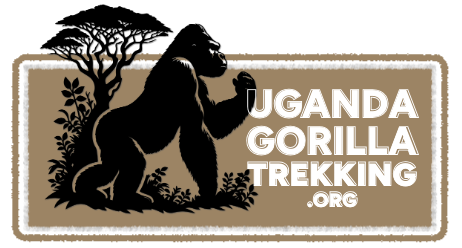Lake Kivu: Exploring the Jewel of the Great Lakes Region
Nestled along the border between Rwanda and the Democratic Republic of Congo, Lake Kivu is one of Africa’s most captivating and serene freshwater lakes. Stretching over 2,700 square kilometers, it is the largest of Rwanda’s lakes and the sixth largest in Africa, offering a unique combination of breathtaking scenery, volcanic landscapes, cultural richness, and adventure opportunities. From its tranquil shores to its vibrant islands, Lake Kivu is a destination that captures the imagination of travelers seeking both relaxation and exploration in East Africa.
Geography and Natural Setting
Lake Kivu lies at an elevation of approximately 1,460 meters (4,790 feet) above sea level, tucked within the Albertine Rift, a branch of the East African Rift. Its waters are deep, reaching depths of up to 480 meters (1,575 feet), and its shores are framed by rolling hills, volcanic peaks, and lush coffee plantations. The lake is dotted with islands, including the scenic Idjwi and Amahoro Islands, many of which are accessible for day trips or cultural visits.
The surrounding volcanic terrain, part of the Virunga Massif and the Congo-Nile Divide, provides a dramatic backdrop for the lake, with forests, hills, and cliffs adding to the scenic allure. Its waters are calm and clear, often reflecting the volcanic peaks and lush hillsides, making it a paradise for photographers, nature lovers, and travelers seeking peaceful landscapes.
Activities at Lake Kivu
Lake Kivu is a haven for a variety of activities that appeal to adventurers, wildlife enthusiasts, and those seeking relaxation.
Boating and Island Exploration: Lake Kivu’s islands, including Amahoro Island and Idjwi Island, offer opportunities for exploration, picnics, and visits to local communities. Boat rides across the lake reveal panoramic views of hills, forests, and distant volcanoes.
Swimming and Beach Relaxation: The lake’s calm shores, especially around Gisenyi and Kibuye, provide safe spots for swimming and lakeside relaxation. Sunrise and sunset along the beaches are particularly magical, painting the volcanic backdrop in shades of gold and pink.
Hiking and Volcano Treks: Surrounding hills and volcanic slopes offer trekking opportunities ranging from moderate hikes along the lakeshore to more challenging climbs of nearby volcanic peaks. Hikes often include visits to coffee plantations, bamboo forests, and viewpoints overlooking the lake and surrounding landscapes.
Fishing: Lake Kivu supports local fisheries, with tilapia and Nile perch being the main species. Travelers can join local fishermen for a traditional fishing experience or enjoy freshly caught fish prepared in lakeside villages.
Water Sports: Kayaking, paddleboarding, and canoeing are increasingly popular on the lake, providing an active way to explore its scenic coves and islands.
Wildlife and Flora
Lake Kivu and its surrounding hills are ecologically rich, forming part of the Albertine Rift’s biodiversity hotspot. The lake itself hosts several fish species, supporting local livelihoods and birdlife. The shores and hills provide habitats for small mammals, monkeys, and a variety of bird species, including African fish eagles, kingfishers, herons, and sunbirds.
Flora along the lakeshore and nearby volcanic slopes includes tropical and montane forests, bamboo groves, coffee plantations, and wildflowers. The combination of aquatic and terrestrial ecosystems makes Lake Kivu a unique environment where biodiversity thrives and offers visitors abundant wildlife viewing opportunities.
Cultural and Local Experiences
Lake Kivu is surrounded by vibrant communities with rich cultural traditions. In Rwanda, towns such as Gisenyi, Kibuye, and Cyangugu are bustling lakeside hubs where visitors can experience local cuisine, markets, and handicrafts. Day trips to islands and lakeside villages offer insight into fishing traditions, agriculture, and local history. Cultural interactions often include music, dance, and storytelling, connecting travelers with the region’s human heritage as deeply as its natural beauty.
Accommodation Options
Lake Kivu offers a range of lodging options, from luxury resorts to boutique eco-lodges and guesthouses. Many accommodations are situated along the lakeshore, providing stunning views of volcanic peaks and calm waters. Luxury resorts offer private villas, spa services, and full-service amenities, while mid-range lodges provide cozy rooms and lakeside decks. Several lodges organize guided boat tours, hiking trips, and cultural visits, allowing travelers to fully experience the lake and its surroundings.
Staying along the lake allows for early morning exploration and evening reflection. Mist rising off the water in the early hours enhances the scenic beauty, while sunsets over the volcanic hills create dramatic and memorable vistas.
Best Time to Visit
The best time to visit Lake Kivu is during the dry seasons, from December to February and June to August, when roads are firm, visibility is clear, and outdoor activities are most enjoyable. These months are ideal for boating, hiking, birdwatching, and exploring lakeside villages. The wet seasons are still manageable but can make some trails slippery and reduce visibility for distant landscapes.
Practical Travel Tips
Travel with local guides for safety and to enhance wildlife and cultural experiences.
Bring layered clothing, as mornings can be cool while afternoons warm.
Carry waterproof gear if visiting during the rainy season.
Pack binoculars and a camera for birdwatching and capturing lake vistas.
Respect local communities, wildlife, and ecosystems by minimizing your environmental footprint.
Book accommodations early during peak seasons to secure lakeside lodgings.
Why Lake Kivu Should Be on Your Travel Itinerary
Lake Kivu is more than just a freshwater lake; it is a place where natural beauty, adventure, and culture converge. Its calm waters, volcanic backdrop, scenic islands, and vibrant communities make it a destination that appeals to travelers of all interests. Whether paddling across the lake, hiking volcanic slopes, exploring islands, or simply relaxing on a quiet lakeshore, visitors experience a profound connection with nature and the rich cultural heritage of the Great Lakes region.
